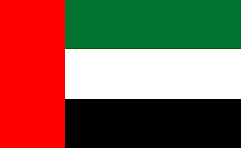We use cookies to personalize content and advertisements, to offer social media functions and to analyze access to our website.
You can revoke the given consent at any time. You can find further information in our Privacy Policy.
Mar 2016
On 01, Mar 2016 | In News @en | By Alisa Maier
 The United Arab Emirates (UAE) has been working on a new legislation for the restriction of the use of hazardous substances in electrical and electronic equipment. Three different draft versions have been discussed since last summer. Now, a finalized draft version has been submitted to the Federal National Council and is expected to be approved soon. According to the draft regulation, the final law shall enter into force one year after its publication in the UAE Official Gazette.
Basically, the UAE RoHS draft regulation is based on EU RoHS Directive 2011/65/EU. As in the EU, the following substances are intended to be restricted, with identical thresholds: Lead, Mercury, Cadmium, Hexavalent chromium, Polybrominated biphenyls (PBB), Polybrominated diphenyl ethers (PBDE) as well as the four phtahaltes which were added in March 2015: Bis(2-ethylhexyl) phthalate (DEHP), Butyl benzyl phthalate (BBP), Dibutyl phthalate (DBP), Diisobutyl phthalate (DIBP).
Despite the similarities, there are differences with respect to transition periods and compliance requirements, as e.g. registration and certification duties. It is prohibited to display or sell any products in the UAE unless they are registered under ECAS or have a certificate or mark accepted by ESMA.
For more information please contact us at info@1cc-consulting.com.
The United Arab Emirates (UAE) has been working on a new legislation for the restriction of the use of hazardous substances in electrical and electronic equipment. Three different draft versions have been discussed since last summer. Now, a finalized draft version has been submitted to the Federal National Council and is expected to be approved soon. According to the draft regulation, the final law shall enter into force one year after its publication in the UAE Official Gazette.
Basically, the UAE RoHS draft regulation is based on EU RoHS Directive 2011/65/EU. As in the EU, the following substances are intended to be restricted, with identical thresholds: Lead, Mercury, Cadmium, Hexavalent chromium, Polybrominated biphenyls (PBB), Polybrominated diphenyl ethers (PBDE) as well as the four phtahaltes which were added in March 2015: Bis(2-ethylhexyl) phthalate (DEHP), Butyl benzyl phthalate (BBP), Dibutyl phthalate (DBP), Diisobutyl phthalate (DIBP).
Despite the similarities, there are differences with respect to transition periods and compliance requirements, as e.g. registration and certification duties. It is prohibited to display or sell any products in the UAE unless they are registered under ECAS or have a certificate or mark accepted by ESMA.
For more information please contact us at info@1cc-consulting.com.